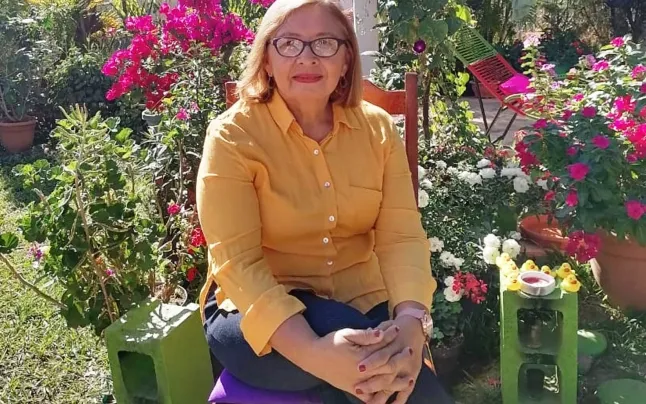Evelyn Romero: "In El Salvador, women's organizations have remained in the defense of human rights"
Evelyn Romero participates and works from a young age in the Salvadoran department of Morazán with the Red Ciudadana de Mujeres de Morazán (RCMM), in the promotion and defense of women's rights and human rights.
The Red Ciudadana de Mujeres de Morazán works to promote and defend the rights of women in this department of El Salvador. The reality that the rural woman of Morazán lives, in terms of her marginalization, discrimination, domination and violence, is what motivated Evelyn Romero to implement a total strategy in the promotion of her rights through awareness for the empowerment and conquest of their full development.
The Network promotes organization, training, participation in civic and political advocacy, the fight against gender violence and the promotion of economic autonomy. The interviewee explains that this task is one of the aspects that gives meaning to her life.
You are a believer, linked for decades to Basic Ecclesial Communities (CEBs) and Liberation Theology, how was your approach to religion?
I come from a traditional religious family, clinging to the dogmas, the rites, the commandments and the rules of an institutional church. And like most families, they trained us from an early age, in a doctrine aimed at memorizing and doing religious practices. They instilled in us to believe in a distant God, the God who expects us to behave well and to obey his mandates; without analysis, without questioning and without own or critical thinking.
But at the age of 16, I discovered in Liberation Theology, another vision of God, of the human being and of the world. I discovered a close God, of community, a God who loves justice, a human God, among us and everything.
In these first years of the 21st century, how have the faith and religiosity of Salvadoran society evolved, how do you value these changes?
Since the years that Liberation Theology has been promoted, based on the reflection that is carried out in Latin America, and that is collected in the Documents of Medellín, and all the boom that the TA and the CEBs had in El Salvador since the 70s, in which hundreds of martyrs were born, including our Prophet Monsignor Romero or Rutilio Grande; all this rich experience of faith, nourished and was leaven for the construction of the Kingdom of God in this country.
However, it had a very high cost in human lives, since the forces of the empire murdered almost all the evangelizers of that time, as well as the counter-offensive that prompted John Paul II against the Theology of Liberation in the 80s. This, too, had a great impact because Salvadoran society and the vast majority of the clergy have gone back 50 years, returning to a disembodied vision of reality, in which they return to religious practices detached from the reality.
Today, what do you think is the role that CEBs should have, what are their challenges and, especially, what is the role that women should have in their development?
The reality that El Salvador is experiencing in this historical period of social, political, economic, cultural and religious crisis, raises the urgency that there are men and women aware of their reality. In the CEBs, understood as a small community left over from the 1980s, it is necessary to reconsider the direction to once again carry out basic work in which the Basic Christian Communities are promoted, and from these nuclei, analyze the reality and undertake processes towards active participation in the socio-political work of the country.
The women's organizations in this reality are the ones that, in various events, have kept fighting in the defense of human rights, and they are the ones that are in a permanent training process, thus achieving greater levels of empowerment in rights and in defense of vulnerable life.
This interview was published in issue 12 of ' Nàhuat, magazine of solidarity with El Salvador ' dedicated to analyzing religiosity and the latest social changes in El Salvador.







Add new comment